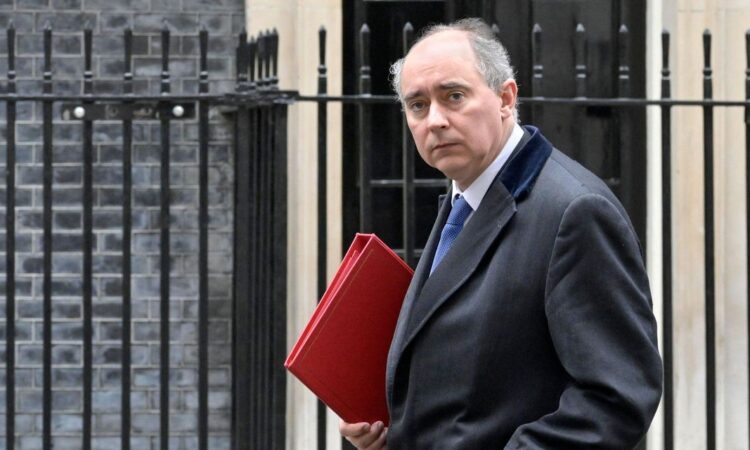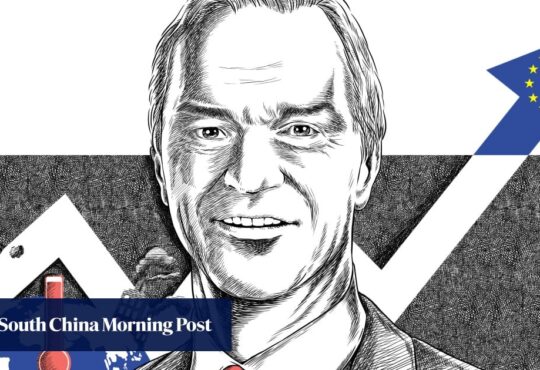
About the author: Edward Price is principal at Ergo, a global intelligence, consulting, and forecasting firm. A former British trade official, he also teaches at New York University’s Center for Global Affairs.
New York City is hot. Too hot. When I meet the U.K.’s new Investment Minister, Dominic Johnson, it is 95 degrees. But Johnson exudes bonhomie, joyously tapping my chest with rolled up papers and shaking my hand. He’s in town to meet Americans investing in Britain.
And he’s beaming.
“FDI into the U.K. is going extremely well,” he tells me. That’s foreign direct investment, and it’s as good an indicator as any of the Brexit promise that Britain would be open for business. “It’s hit the highest peak ever, at $2.7 trillion.” That’s a rough doubling in a decade, a result of which any government would be proud. We take our seats and Johnson explains the U.K.’s goals: “The prime minister has a single ambition: to turn us into a science and technology superpower.”
Seven years after the Brexit vote, it appears the U.K. has a plan.
Advertisement – Scroll to Continue
At this point, a disclaimer. I’m a former British official. I served in the British Consulate in New York and I want the country to succeed. But I know as well as anyone that the country’s reputation for stability has been damaged. Exiting Europe was far from smooth—it’s taken five prime ministers. One of them, Liz Truss, was rushed out after she spooked markets.
Right now, U.K. economic data is a mixed bag. The Organization for Economic Cooperation and Development is forecasting 0.3% growth this year and 1% in 2024. At least consumer price index inflation is trending down, from 8.7% in May to 7.9% in June. But, in Britain’s defense, the global economic environment has been—and is—quite tough.
So, I push Johnson on the details. What exactly is the U.K. selling now?
Advertisement – Scroll to Continue
“We’re selling extraordinary people, the extraordinary R&D base the U.K. has,” Johnson says. Two officials take notes and some unbidden sodas arrive. But Johnson is midflow: “If we aren’t at the forefront of AI, advanced manufacturing and pharmaceuticals, then we won’t have the economic strength for wealth and security in the future.”
That’s quite the prognosis. Ministers rarely admit that the future might be worse. So I ask for more, for his underlying analysis.
“In my lifetime, there have been two great tidal movements. These tides were low inflation and ever-increasing globalization. Now, in the last five years, that has reversed.”
Advertisement – Scroll to Continue
It’s a good observation. Price increases may be slowing in the U.S. and France. But all told, inflation lingers. The days of free money are over. Meanwhile, trade is fragmenting. Consider the list of new words: onshoring, nearshoring, friendshoring, decoupling, de-risking. The heyday of global trade is dead.
Did Brexit kill it?
“What was the Brexit decision? To enable Britain to be a global trading power, rather than simply locked into an important but single market trading zone,” Johnson says. We have heard this argument before. It’s the Global Britain mantra, the idea that Brexit would free the U.K. to trade. So far, the best new deal has been Britain’s accession, this month, to the Comprehensive and Progressive Agreement for Trans-Pacific Partnership. So far, any gains are in the future.
Advertisement – Scroll to Continue
But Johnson makes another interesting point. “We are the only government in the world trying to negotiate free trade deals right now. That’s not uncontentious.” The phrase “not uncontentious,” uttered by a Brit, means very contentious. Many countries pursue deeper trade relations with their neighbors. But as we sip at the sugary drinks, I think I see what Johnson means. Many other trade arrangements are hardly liberal. And many are also regional. Think China’s Belt and Road. Think the EU. So is Britain not just a force for regional trade, but for international trade too?
“We are pushing against the deglobalization trend,” Johnson explains, “and Brexit was part of that.” In a world of fewer goods, disrupted supply chains and more costly capital, Johnson is arguing that the U.K. can keep truly global markets alive. “A change in the relationship between the U.K. and EU will allow Britain to do far more than it could before. And we are allied with Europe, so that will allow Europe to get stronger too.”
A year ago, all this positivity would have been odd.
Advertisement – Scroll to Continue
Brexit made it difficult for the U.K. and EU to agree about even minor economic issues. But Russia’s war in Ukraine has prompted a collective response that will make collaboration everywhere easier. The U.K. led the way in sending arms; the EU followed. Throw in Rishi Sunak’s Windsor Framework—the prime minister’s recent agreement with the EU on Northern Ireland—and Johnson’s thesis appears to be correct. Britain and the EU can indeed cooperate. And Britain can innovate, remaining the center of global capital flows and leading the pack on next-gen tech.
But there’s an elephant in the room: China. This one could sink our boat. The Americans, Britain’s strongest ally, are checking China’s rise. Meanwhile China, a source of future business for London, is rearming. How does the U.K. avoid this brawl?
Johnson puts his soda down. “Brexit gives us a chance to flex our diplomatic muscles and to be what we always were—the fulcrum nation in the world. We should assume that role again. And Rishi Sunak has already started to do that,” Johnson says. He’s referring to the Windsor Framework and the Atlantic Declaration. The latter is a plan for U.S.-U.K. cooperation in what you might call the strategic economy, things like AI, the green energy, and critical minerals.
There’s time for a final question. Johnson is a Conservative. An investor by profession, he is undoubtedly a free-markets guy. So how does he square that philosophy with what is, essentially, the U.K.’s new industrial policy?
“The government should be a de-risker, not an investor. So I’m very comfortable with the need of government to partner with the private sector and develop these massive, capital intensive projects.” The proof of this claim is in the pudding. Tata Motors recently chose the U.K. for a multibillion-dollar electric car battery plant. The U.K. government gave that project support.
My conclusion? If the U.K.’s big plan goes well, the country will be able to surf the wave of the 21st century, innovating at home and managing global funds from east and west alike. The alternative is bleak—an unimaginative slide into irrelevance.
Now Johnson must run to a dinner. And I must run to a train. So we shake hands again. A nation of tea-drinkers, we haven’t finished our sweet fizzy drinks.
But then, Johnson’s punchline: “We must think much, much bigger,” he tells me, still smiling as he leaves. And on that, two Englishmen agree.
Guest commentaries like this one are written by authors outside the Barron’s and MarketWatch newsroom. They reflect the perspective and opinions of the authors. Submit commentary proposals and other feedback to [email protected].






